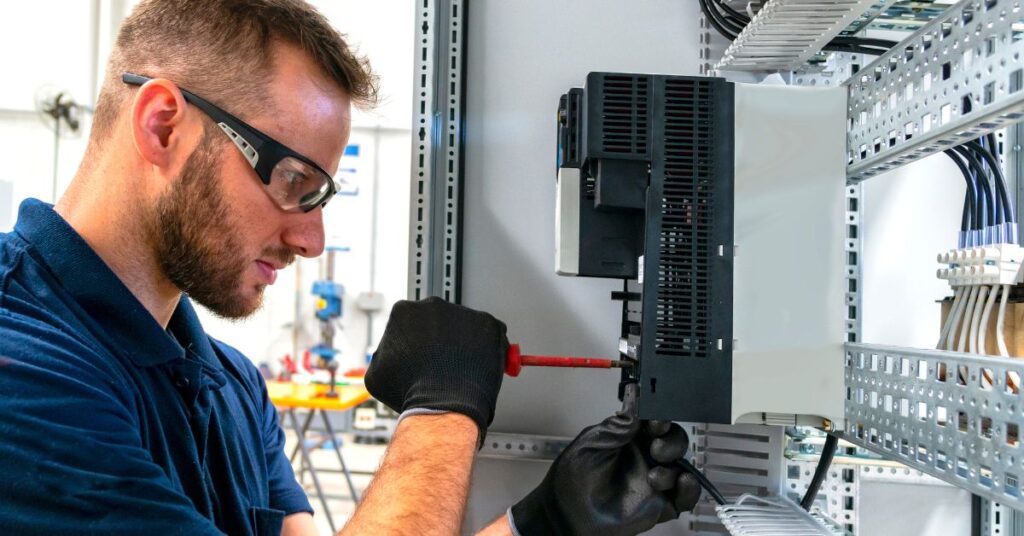Are you looking to shield your own home against electrical risks? Look no in addition! In this comprehensive manual, we will delve into the top 10 electrical safety tips at home you need to understand to keep your property and loved ones safe. Whether you are a seasoned house owner or just moving in, those hints are crucial for preventing injuries and retaining secure surroundings. So, let’s dive in and discover the high-quality practices for electrical safety at domestic!
Table of Contents
The Important 10 Electrical Safety Tips At Home
Electrical safety at home is paramount for shielding your home, cherished ones, and yourself from capacity risks. Hundreds of accidents and fires occur yearly due to electric mishaps, which could have been avoided with proper precautions. The consequences of neglecting electric protection can be severe, from minor shocks to devastating fires.
By prioritizing electrical protection in your house, you no longer most effectively reduce the threat of injuries; additionally, ensure the toughness and efficiency of your electric structures.
Additionally, working towards electrical safety behavior can lead to sizable fee financial savings by fending off upkeep, replacements, and capability insurance claims associated with electrical incidents.
Furthermore, secure domestic surroundings promote peace of mind, permitting you to relax and revel in it slowly without demanding the threat of electrical hazards. Whether you’re a house owner, renter, or landlord, taking proactive steps to enforce electrical protection measures is essential for developing a stable living space for everyone.
Electrical Safety Statistics and Risks
Understanding the data and risks of electric safety is crucial for creating awareness and imposing effective preventive measures. Electrical problems or failures rank among the leading causes of home fires, according to the National Fire Protection Association (NFPA).
Between 2014 and 2018, electric distribution or light gadgets became involved in an anticipated annual average of 44,880 home structure fires pronounced to U.S. Fireplace departments.
These fires led to numerous fatalities, accidents, and property harm, amounting to billions of bucks every 12 months. Furthermore, electrocution poses a full-size risk, especially in families with old wiring or unsuitable electrical installations.
According to the Consumer Product Safety Commission (CPSC), one hundred eighty electrocutions arise annually within the United States, many of which can be preventable with the proper precautions.
In addition to the direct risks of fires and electrocutions, defective electric systems can also result in strength surges, which may harm electronic gadgets and appliances, resulting in costly repairs or replacements.
These statistics underscore the significance of prioritizing electrical protection measures inside each home. By being informed about the risks and taking proactive steps to mitigate them, house owners can substantially reduce the chance of electrical accidents and shield their families and homes.
Understanding Electrical Hazards
To ensure a safe residing environment, it’s essential to grasp the diverse electrical risks that could pose risks inside your property. Electrical dangers are available in various paperwork, ranging from defective wiring to overloaded circuits, and knowledge of them is step one towards prevention.
One commonplace electrical threat is uncovered wiring, which occurs when wires are damaged or improperly set up, leaving them vulnerable to sparks and brief circuits. Additionally, overloaded circuits, regularly because of plugging too many devices right into a single outlet, can result in overheating and capacity fires.
Water and strength don’t blend properly, offering every other significant change, particularly in kitchens, toilets, and outside spaces. Wet situations increase the chance of electrical shocks and might cause serious accidents or fatalities if the proper precautions aren’t taken.
Old or previous electric structures also pose massive risks, as getting old components may become worse over the years, leading to malfunctions and ability risks. Additionally, DIY electric work without the right know-how and schooling can result in unsafe installations, increasing the hazard of electrical injuries.
It’s critical to recognize these risks and take proactive measures to cope with them, consisting of scheduling regular electric inspections, averting overloading circuits, preserving WWater far from electric appliances and stores, and hiring qualified specialists for any electrical paintings.
Knowing the diverse electrical hazards in your property and taking appropriate precautions, you may appreciably lessen the danger of electrical accidents and create more secure dwelling surroundings for you and your family.
General Electrical Safety Tips
Avoid Overloading Circuits: Overloading circuits by plugging in too many electric gadgets can lead to overheating and capacity fires. Spread your electronics throughout exceptional outlets, or consider putting in extra circuits.
Use Surge Protectors: Surge protectors help guard your electronic gadgets from energy surges and spikes. Invest in excellent surge protectors and use them for touchy devices like computers, televisions, and gaming consoles.
Properly Ground Appliances: Ensuring that your appliances are nicely grounded is critical for electrical safety. Faulty grounding can lead to shocks, so look at the grounding of your gadgets frequently and seek advice from an expert if wished.
Regularly Inspect Cords and Outlets: Examine cords, plugs, and shops for any symptoms of wear or harm. Replace frayed or broken cords right now, and never pressure a plug into an outlet that does not match well.
Unplug Unused Electronics: When no longer in use, unplug electronics to limit the chance of electrical dangers. Now, it saves electricity and reduces the chances of injuries due to faulty gadgets.
Proper Use and Maintenance of Electrical Appliances
To ensure the toughness and safety of your electrical home equipment, it’s critical to observe the suggestions:
Read and Follow Manufacturer’s Instructions: Always study and adhere to the producer’s guidelines while using electric appliances. It includes the proper installation, usage, and protection instructions.
Steer clear of overloading outlets by not plugging in too many items simultaneously. Outlets can overload it and increase the danger of electrical fires. Spread out your devices throughout several stores to distribute the load calmly.
Regular Cleaning and Maintenance: Keep your home equipment clean and free from dust and debris. Regularly inspect them for any signs of harm, and promptly restore or replace them if essential.
Electrical Safety Precautions inside the Kitchen
The kitchen is a hotspot for electrical hazards because of Water and diverse electrical home equipment. Follow those precautions to keep electrical safety for your kitchen:
Keep Water Away from Electrical Appliances: Never operate electric home equipment with wet arms, and ensure your countertops and flooring are dry before using them. Keep electric gadgets far from sinks and different water assets.
Use Ground Fault Circuit Interrupters: Install GFCIs in regions wherein Water is present, including near sinks or countertops. GFCIs are designed to close off power during a floor fault, stopping electric shocks.
Avoid Overloading Kitchen Outlets: Use electric home equipment like microwaves, toasters, and blenders throughout one-of-a-kind outlets to prevent overloading. It reduces the threat of circuit journeys or electrical fires.
Electrical Safety within the Bathroom
Like the kitchen, the toilet is another location where Water and power meet. To ensure electrical protection in your lavatory, comply with the precautions:
Install GFCIs: Like in the kitchen, install GFCIs in your bathroom to guard against electric shocks. These gadgets can keep lives by detecting ground faults and immediately slicing off the power.
Keep Appliances Away from Water: Never use electric home equipment near water assets like bathtubs, showers, or sinks. It consists of hairdryers, electric razors, and electric-powered toothbrushes.
Inspect Bathroom Outlets: Regularly check the outlets on your lavatory for signs and symptoms of damage or damage. Contact a qualified electrician to deal with the hassle if you note any troubles.
Childproofing Your Home for Electrical Safety
If you have youngsters at home, taking more extraordinary precautions to childproof your electric outlets is essential. Here are a few measures you may take:
Use Outlet Covers: Install outlet covers or protection caps on all unused electrical shops to save your children from placing gadgets into them.
Hide Cords and Wires: Keep cords and wires out of reach with twine concealers or organize them in the back of furnishings. It reduces the hazard of children pulling on them or getting tangled.
Educate Children about Electrical Safety: Teach your youngsters about the risks of power and the importance of not playing with electrical retailers or appliances. Supervise their use of electrical gadgets till they’re old enough to understand and follow protection suggestions.
Hiring a Professional Electrician for Safety Inspections
Regular inspections via a certified electrician are vital in retaining electric protection at domestic. Here’s why you ought to take into account hiring an expert:
Identify Potential Hazards: Electricians are educated to perceive electric hazards that owners may leave out. They can spot faulty wiring, previous circuits, and different safety dangers.
Ensure Code Compliance: Electricians ensure that your electric structures are as much as code assembly all protection standards and rules.
Peace of Mind: By hiring an expert electrician for protection inspections, you can have peace of thought, understanding that your private home’s electrical system is safe and secure.
Conclusion
Ensuring a Safe and Secure Home with These 10 Electrical Safety Tips At Home Measures electrical protection at home is most important to shield your family and assets from capacity hazards. You may create a secure environment by knowing commonplace electrical risks, enforcing safety pointers, and hiring professional electricians for inspections. Remember to prioritize ordinary maintenance and proactively identify and address capacity electric hazards. Following those Top 10 Electrical Safety Tips At Home recommendations, you can create a secure and steady domestic for you and your family.



